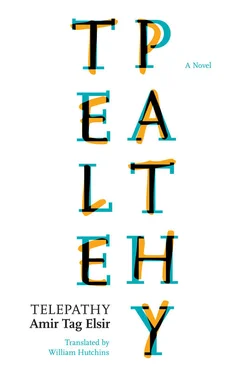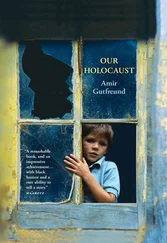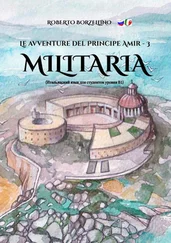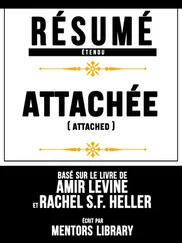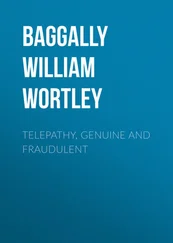“Treat him?” Hajj al-Bayt asked.
I had paid no attention to his strange name; in other circumstances I would have been immensely interested and would have considered using this name for a character that would resemble him, because I had never before heard of a man named Hajj al-Bayt. I would never have thought that anyone had this name — and that’s exactly what happened when I blindly wrote down the name Nishan. I had been enchanted by my sweet discovery, even though it now seemed that I actually hadn’t discovered it. The imam’s voice had become a rabble-rouser’s. He raised his hands on high, revealing the stubble of white armpit hair that had been plucked, and started off, as if in a pulpit, “Why should you treat him? In exchange for what? Suhayla Ahmadu went mad years before he did and ate dogs and cats. No one treated her. Nurayn Hamidayn, a proper tailor, went insane and walked naked in the street, shaking his genitals, but no one treated him. This young man, Murtaja, was studying at the university and went mad. Now he declares confidently that he is Wikipedia — the free encyclopedia — and that in his head are a billion pages on which the entire world is written. Yet we haven’t heard of anyone trying to treat him.”
Murtaja was barefoot, his gray shirt had lost its buttons, and the hems of his shorts were frayed. He paced back and forth, speaking nonstop while gazing down at the ground. At that moment he was reciting a random page from the Wikipedia of his unbalanced mind. It was devoted to Nasnusa, a creature that ate human flesh and that had defeated the mighty Roman army in the Battle of Wadi al-Hikma. Murtaja walked by Ifranji without looking up. He paused, stopped his recitation of the entry for Nasnusa, and verbally attacked the Southerner, who was still trying to court the brown girl, with an entry devoted to passion and passionate lovers, beginning a year before the Nativity.
A writer’s persona seized hold of me briefly as I recognized that this peripheral neighborhood was a trove for creative writing. I might return here to build a corrugated metal hovel where I would live for a time while I wrote about the entire district.
This would not be out of character for me, because I am used to wading into adventures without thinking twice when writing flames in me or illuminates me with its green light. I once lived in a comparable district and served time in prison; I went into business with a woman named Amina Sarmadu to distill liquor from sorghum and dates when I wanted to write a novel that featured a female vendor of these locally brewed beverages.
Unfortunately, the writer’s persona did not linger in my mind for long. It self-destructed when Hajj al-Bayt continued bombastically, “You haven’t told me why you’re interested in Nishan. First of all: who are you? Nishan we know. We know about his insanity that comes and goes. We even know how dangerous he can be. For us, though, he is not a big problem. Either help us achieve a better standard of living or leave us in peace.”
I was about to interrupt to clarify the situation for this man, who seemed capable of understanding my motivations if I explained them more fully, when an old geezer started shouting. He wore a patched green loin cloth and was leaning on the shoulder of a girl of about seven. She might have been his granddaughter or that of any other sheikh his age, because I know that in these districts, paternity isn’t limited to one’s actual father — men play father to their own children and all the other kids.
“God is most great! Down with the villains! Down with the traitors! Glory and honor to the people of the fatherland!”
This ill-timed cry from the elderly man, who was as old as Abd al-Qawi but lacked the Shadow’s wisdom and talent, was a senile outburst with consequences that I had not wanted or expected when I set out in search of Nishan Hamza. We hadn’t come as villains and weren’t enemies of the state. An enemy of the proletariat does not come searching for one of them.
I realized then that I found myself in a serious crisis that was growing more dangerous with every passing moment.
Why had I listened at all to Nishan Hamza? Why had I brought him, eyes closed and bewildered, into my spiritual mother’s home and allowed him to speak? Why hadn’t I acted like some damn writer who creates ivory towers for himself and recruits an arrogant guard force to repel problems like Nishan — without the author having to know about it? I could have signed a copy of the novel for him at the Social Harmony Club and laughed or felt sad for a few moments or fled to my car — without waiting for him. He would never have come across me when I was alone, and at any other time the people surrounding me would have stopped him from ending my life. In fact, I myself could easily have escaped from him but hadn’t.
“ Allahu Akbar! Down with all who betray the people!”
Voices assailed us as the ring around us tightened threateningly. Then the imam, Hajj al-Bayt, whether on purpose or because he had no other choice, finally sided with us and used his voice at its maximum strength to stop the mayhem. He made it clear that we intended no harm to anyone in Wadi al-Hikma and that we were benevolent souls who actually had come to treat a son of the district. He could have said this at first, when harmony reigned supreme, but hadn’t. He could have prolonged that harmony, but hadn’t.
The angry talk eventually calmed in response to the imam’s appeal, and the circle began to loosen. Selling resumed from rags spread on the ground, and buying perked up too. Hajj al-Bayt, the imam, insisted on accompanying us in person on our expedition to track down Nishan.
We didn’t find him in his shack, which contained a worn-out mat, a dirty dammur cotton pillow from which soiled stuffing protruded, a number of tunics and turbans that were tossed here and there, and many books. These must have been law books for his legal studies, which had been suspended. I also glimpsed some ragdolls and shuddered.
We didn’t discover him at any of the construction sites teeming with workers, even though he had occasionally worked as a day laborer. That ceased, however, when he was no longer able to work.
The indefatigable Hajj al-Bayt climbed out of my car whenever it came to a stop. He would enter a house and pop back out. Finally he was obliged to accompany us to an outlying section of the district with seven mud-brick houses, which he said were filthy and of bad repute. Ethiopian women lived there, and he didn’t know whether Nishan visited them or not. Our fugitive, however, wasn’t there either.
Finally we discovered him on an abandoned section of railroad track. In the past, this line had carried passengers and freight from the port to the capital, but fast, modern, paved roads had rendered it obsolete.
Nishan had reached one of the extreme stages of his schizophrenia. He was wearing the torn uniform of a general and drilling seven adolescent boys. Apparently to punish them for being mutinous soldiers who had fled from a battle, he had lined them up, single file. Their posture in the line showed that they thought the whole affair was a big joke.
Suddenly, as we approached, Nishan abandoned his military reserve and threw a boy to the ground and knelt on his belly. He and the boy were yelling, but the other boys continued to mock him. Joseph Ifranji, Hajj al-Bayt, and I rushed to them and helped the teenagers lift Nishan from the boy’s belly. We threw him in the back seat of the car. Joseph Ifranji bound Nishan’s feet and hands with a stout rope he pulled from beneath his seat, trussing him up brilliantly. Ifranji repeated, “I knew I would need you, rope. Thanks, Rope!”
Nishan yielded more completely than I would ever have imagined possible. At critical moments like this he seemed incapable of inspiring a novel or of transmitting one by telepathy. He also seemed a lover unlikely to have captivated an educated nurse. He did not seem to be an ordinary Wadi al-Hikma loafer who bought supplies from a carpet spread on the ground.
Читать дальше
